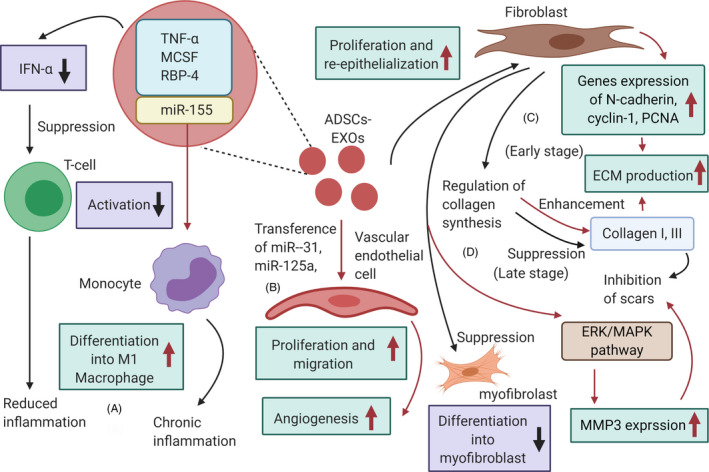FIGURE 2.

Mechanisms by which ADSCs‐EXOs may promote wound healing. (A) adipose‐derived stem cells (ADSCs)‐EXOs contain immunoregulatory proteins and reduce the secretion of IFN‐α, subsequently inhibiting activation of T cells, resulting in reduced inflammation. Additionally, miR‐155 in ADSCs‐EXOs can induce monocyte differentiation into M1 macrophages, causing chronic inflammation; (B) ADSCs‐EXOs can transfer miRNA‐125a and miRNA‐31 to vascular endothelial cells, stimulating proliferation and migration to promote angiogenesis; (C) In the early stages, ADSCs‐EXOs may promote proliferation, migration and collagen synthesis in fibroblasts, stimulating N‐cadherin, cyclin‐1, PCNA and collagen I, III expression and increasing ECM production; (D) in late stages, ADSCs‐EXOs prevent the differentiation of fibroblasts into myofibroblasts, and reduce scarring by inhibition of the formation of collagen and activation the ERK/MAPK pathway to increase MMP3 expression. Abbreviations: ECM, extracellular matrix; MCSF, macrophage colony‐stimulating factor
